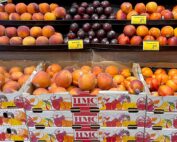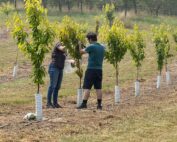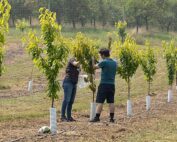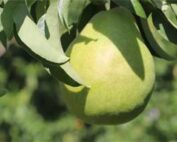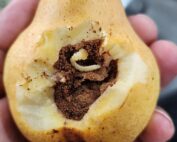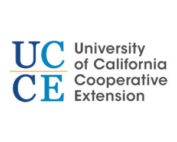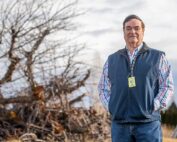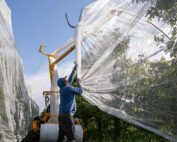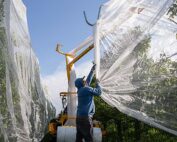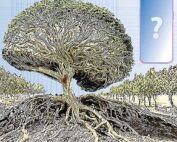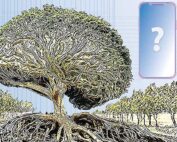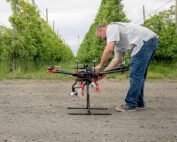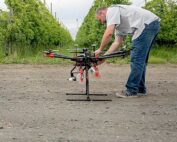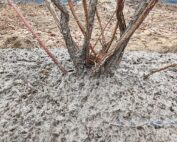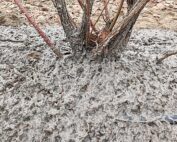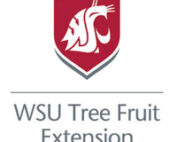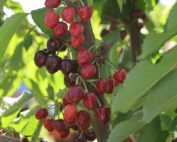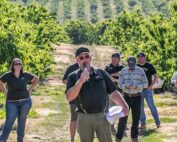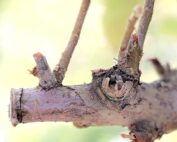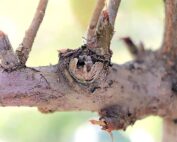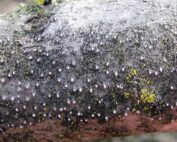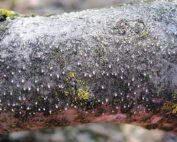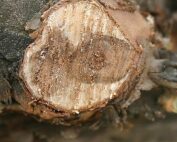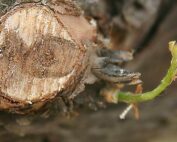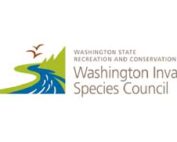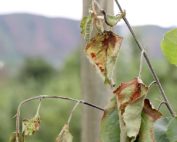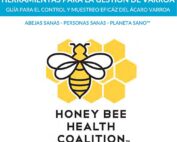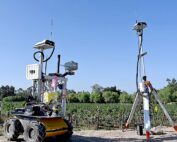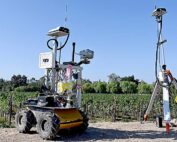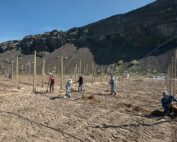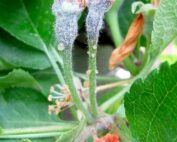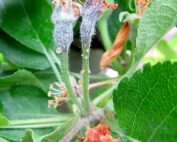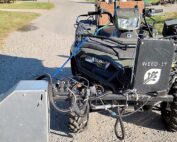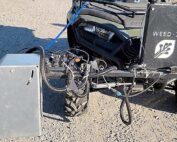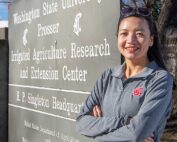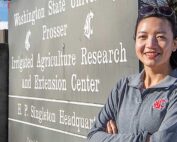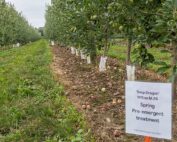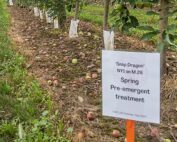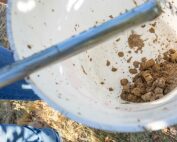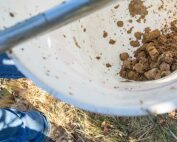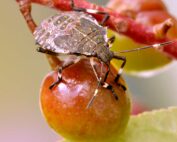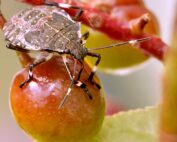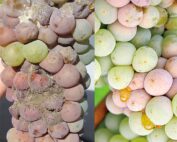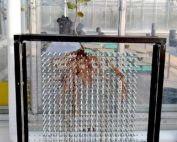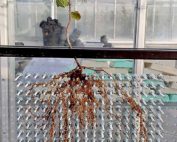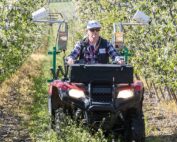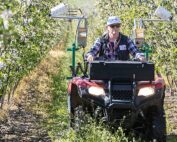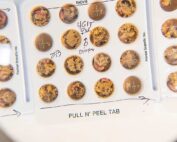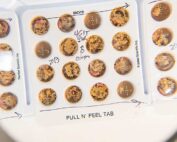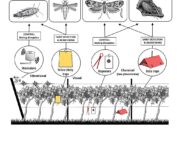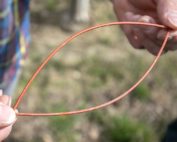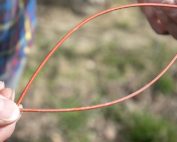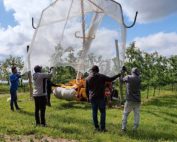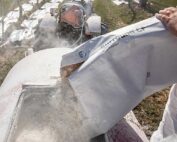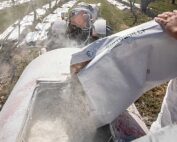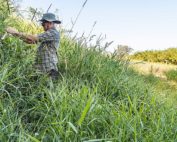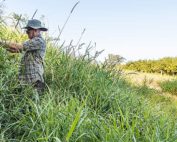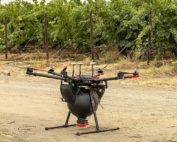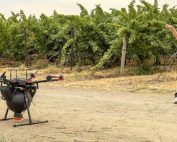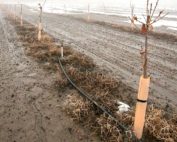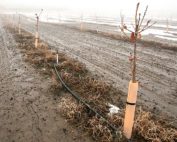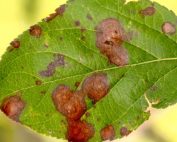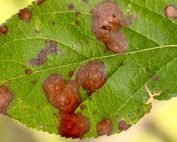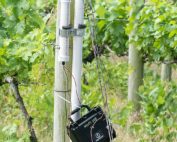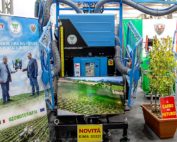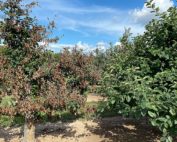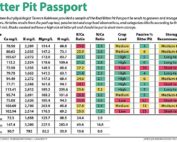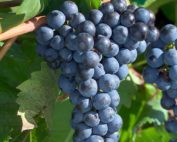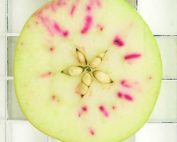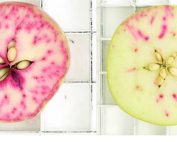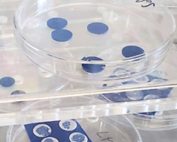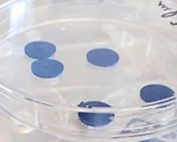ADVERTISEMENT
Eduardo (Lalo) Garcia, a young grower from Pasco, Washington
Eduardo is second-generation in agriculture and is working on a degree in agricultural science from Columbia Basin College. He’s the son of Alma and Jose Garcia.
California stone fruit company recalls fruit due to listeria contamination
HMC Farms, a vertically integrated stone fruit producer in Kingsburg, California, has voluntarily recalled peaches, plums and nectarines for potential listeria contamination...
Replanting research for Michigan cherries
Michigan State University studying nonfumigant solutions for cherry replant disorder.
WSU to hold pear study circles Nov. 15 and Dec. 13
Washington State University Extension announced two pear study circles to provide opportunities for growers, consultants, researchers and industry professionals to learn from one another and improve pear profitability and sustainability...
Virtual meeting Nov. 2 to address California pear pest
University of California Cooperative Extension has scheduled another meeting, this one virtual, to discuss the emergence of the flatheaded borer causing damage to fruit in Lake County pear orchards...
California pear growers invited to meeting about new pest
North Coast pear growers are invited to a University of California Cooperative Extension meeting to discuss the flatheaded borer, a previously unknown pest causing pear damage in Lake County...
Old orchards and old problems for pest control
Abandoned blocks can increase pest and disease pressure.
Unstructured netting provides a bug barrier — Video
Growers try single-row tree netting as pest control.
Digital dialogues offer orcharding advice
The next wave of AI in the orchard arrives as tech startups rush to launch farming chatbots.
Fight pests by phone
Michigan grape app aids pesticide application process.
Down to earth with drones
UAVs make commercial headway in the tree fruit industry.
Paper or plastic for weed suppression — Video
Washington State University trials paper-based slurry as alternative to plastic weed mats for blueberry plantings.
Washington stone fruit growers eligible for cost-share funding for tree removal due to X disease and little cherry virus
Cherry, peach, nectarine, plum and other stone fruit orchards eligible for cost-share funds for up to 10 acres...
Scout now: WSU field day focuses on latest little cherry disease research
The hectic cherry harvest season has arrived in the Yakima Valley, and with it comes the best opportunity to scout for symptoms of the devastating little cherry disease...
Northwest growers take annual Columbia Gorge preharvest cherry tour
A few dozen growers learned about quirks of growing Pearl series cherries, cherry breeding and leafhopper research on June 6 at Oregon State University’s annual preharvest cherry tour in The Dalles...
Good to Know: Take a bite out of blight
Trial compared cutting and sanitization strategies to find the best removal methods for fire blight strikes.
Documenting dieback in stone fruit orchards
New survey for fungal pathogens planned.
Defining trunk disease in Washington vineyards
A survey of Washington vineyards with symptoms of wood-decaying pathogens uncovers new species, showing need for more research to fine-tune management practices.
Webinar on Washington’s spotted lanternfly action plan June 5
The Washington Invasive Species Council will host a webinar to introduce a draft of the state’s spotted lanternfly action plan...
Washington weather conditions pose extreme fire blight risk
Washington State University Tree Fruit Extension is warning growers of extreme fire blight risk continuing through the weekend with rain and warmer temperatures in the forecast...
Honey Bee Health Coalition releases Spanish-language varroa mite management guides
The Honey Bee Health Coalition announced the release of Spanish-language versions of two varroa mite management guides...
Disease detection from space
NASA lends its tech muscle to detecting plant diseases for U.S. farmers.
Washington Soil Health Initiative invests in long-term research orchard planting
With funding from the Washington Soil Health Initiative, researchers from Washington State University and the U.S. Department of Agriculture planted 2.5 acres of Honeycrisp at the Sunrise Research Orchard in Rock Island...
A plan of defense against fire blight
Fire blight experts make progress understanding how, when and where your antibiotic alternatives work best.
High-tech weed spraying with sensors and sensibilities
MSU weed scientist testing vision-guided herbicide sprayer.
New research scientist filling the weed need
Weed scientist joins Washington State University to focus on specialty crop research needs.
Switching seasons improves weed suppression
Research confirms fall is the best time to apply preemergent herbicides.
Hansen: The fumigation fade
Washington vineyard research shows fumigation benefits for nematode control can be short-lived.
BMSB does not like the desert
Invasive pest fares poorly on arid diet as parasitoid introductions continue in Northwest.
Think before you spray it
Schedule disease control for the season you are in, not the average, urge WineVit speakers.
Thiago Campbell, a young grower from Homestead, Florida
Thiago earned his horticulture degree from the University of Florida, a master’s degree at Penn State University and is working on his doctorate from Washington State University. He’s the son of Cecilia and Richard Campbell.
Pacific Northwest pear producers wanted for psylla survey
Pear producers in Washington, Oregon and California are encouraged to participate in a survey regarding pear pest management practices...
Good to Know: Production priorities for USDA research
At Appalachian Fruit Research Station, scientists focus on sustainable production for modern systems.
A bug spray for boosting beneficials
Washington growers and researchers feeling out the potential of natural enemy applications in orchards.
Genetic research rearing moths that don’t like them apples
Researcher explores genetics for codling moth control.
IPM using playback against pests
Italian researchers test vibrational insect signaling for mating disruption.
Growers have an IPM message to tell
MSU speaker says growers need to promote the IPM practices they already do, while still eyeing emerging tools.
Double-duty nets protect apple crop
Hail netting protects apple trees from pests in University of Minnesota trial.
Good to Know: IPM with a phenology focus
Connecting pear psylla phenology with IPM strategies proves successful for Wenatchee Valley pear growers.
Edge effects may boost biocontrol
Oregon research finds wild blackberry brambles show potential as host for spotted wing drosophila parasitoids.
Hansen: Drones may help improve biocontrol in wine grapes
New research shows drones and attractant have potential to sustainably enhance beneficials in Washington vineyards.
Nurseries now testing the tree supply for X disease
As new research uncovers X disease in cherry and peach planting stock, the nursery industry ramps up testing and protective practices.
AI for spot ID
Cornell working on machine learning for apple disease detection.
A new place for spore traps
Devices help scientists study pathogens, fungicide resistance in Michigan vineyards.
Some find success in O3 field sprays
Ozone approach for disease control in Italy gets results with commercial clients in vineyards.
Fire blight’s reappearing act
New York’s fire blight problems get more complicated.
Honeycrisp storage passport stamped
Cornell researchers refine bitter pit prediction method.
Scharlau: A proactive pathway for problem-solving
Grape industries need collaborative approaches to the challenges they face.
Plant hormones help prevent bitter pit
PGRs proving to be effective bitter pit management tools.
Where pathogens persist in the packing house
Clemson University food safety study focuses on dry packing-line surfaces.


